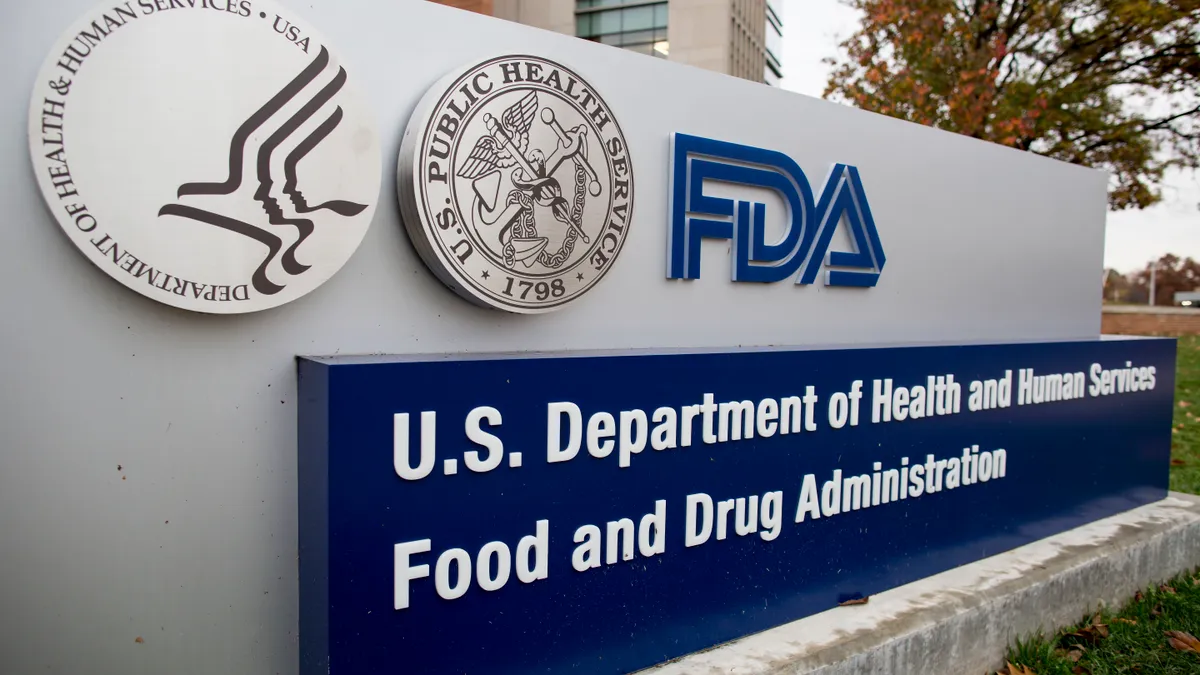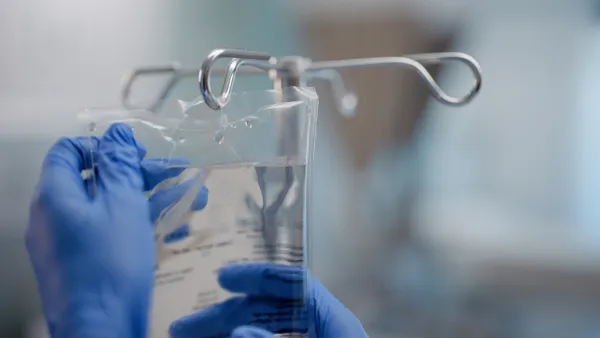Dive Brief:
- FDA issued a final guidance document Thursday laying out the agency's plan to improve how recalls of potentially unsafe medical and food products are communicated to the public.
- The guidance details when a company should issue a public warning about a voluntary recall and what information should be included. It also discusses what may lead FDA to issue its own public warning, if a company's action is judged insufficient to protect consumers.
- The move follows a 2017 report from the Office of Inspector General of HHS that was critical specifically of the agency's food recall process. The report found deficiencies in FDA's oversight of recall initiation and monitoring and with the information maintained in its electronic recall data system, the Recall Enterprise System.
Dive Insight:
In its final guidance, FDA said companies should issue public warnings when a product being recalled presents a serious hazard to health, and other ways to prevent its use are inadequate. Public warnings may be appropriate for urgent recalls of prescription drugs or medical devices that have been widely distributed, or it cannot be determined to whom the product was dispensed.
A public warning should include product images, numerical product information such as unique device identification number, geographic areas and dates of distribution, description of the defect, reason for the recall, contact information for the recalling firm; instructions to consumers, number and nature of complaints associated with the product and description of symptoms, FDA said.
In a statement from Commissioner Scott Gottlieb, FDA said it has already started implementing the recommendations in the final guidance, having issued alerts or consumer warnings on products including Kellogg's Honey Smacks, romaine lettuce and angiotensin II receptor blocker drugs such as valsartan, losartan and irbesartan.
The agency also pointed to its mandatory recall in April 2018 for kratom products made by Triangle Pharmanaturals of Las Vegas after several samples tested positive for salmonella and the company failed to comply with FDA's request for a voluntary recall. FDA has used its 518(e) mandatory recall power only a few times since given the authority by Congress in 1976. The agency advises consumers to avoid any form of kratom due to concern about its use as an alternative to FDA-approved pain medications and because the plant-based compound has not been proven safe and effective for any use.
FDA said recalls reached a five-year low in fiscal 2018, with a total of 7,420, including 831 classified as the highest risk. Recall notices may seem to have risen in number, FDA said, because the agency has increased its publicizing of the events.












